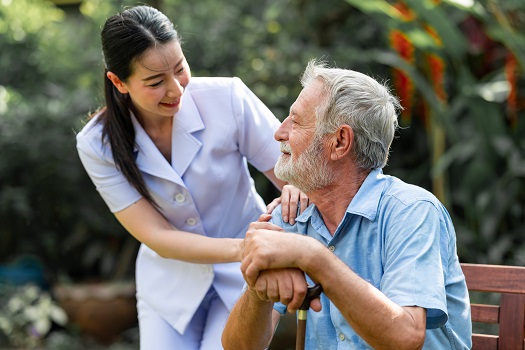If you are looking after an elderly relative, their happiness and health is going to be one of your biggest priorities. Nobody likes seeing their much-loved relatives upset or in pain, but sadly, as people get older, their health may naturally decline. As we age, all of us experience a higher risk of physical illness and disease, but this can also lead to more mental health problems. Seniors are often at a higher risk of suffering from issues like depression and anxiety, especially those who are unable or struggle to do the things that they once enjoyed, which may leave them feeling isolated and lonely.

Independence
Many people will not be able to remain as independent as they once were as they get older. They may require more help and support with everyday tasks and rely on others a lot more frequently compared to in the past. However, this loss of independence can worsen mental health concerns in seniors since feeling like you are unable to do anything for yourself or on your own is not always pleasant. Providing a situation where your relative is able to live as independently as possible, but with help on hand when they need it, is the best way to combat this. You can find independent senior living options at Select Senior Communities where your relative will be able to stay independent while getting the support they require.
Social Life
Being lonely and isolated is one of the biggest risk factors for anxiety and depression in the elderly. It’s important to ensure that your senior relative is getting enough company and has a fairly active social life. Spending time with family is important but it is also crucial that they are able to maintain friendships and take part in community activities. Many seniors enjoy going to local meetups for like-minded people. If you are worried that your relative is feeling lonely and isolated if they are living alone, getting a pet can also be helpful.
Physical Activity
Physical activity is important at any age, and for seniors, it can help with both physical and mental health. Gentle exercise releases endorphins that are natural mood-boosters and there are plenty of exercise options that are ideal for older people to do, even if they have reduced mobility. Swimming, walking, cycling, dancing, and yoga are among some popular exercises with older people and attending fitness classes can also boost their social life.
Learning
Active brains are healthy brains, so it’s no surprise that many seniors enjoy using their golden years to learn something new that they might have not been able to get around to doing before. All too often, older people end up feeling bored spending time sitting in front of the TV all day with little mental stimulation. Puzzles, books, and online learning courses are all ideal options for elderly people who like to keep their brain active and learn new things.
Around the world, mental health impacts thousands of seniors with loneliness and a lack of independence often the root cause.
